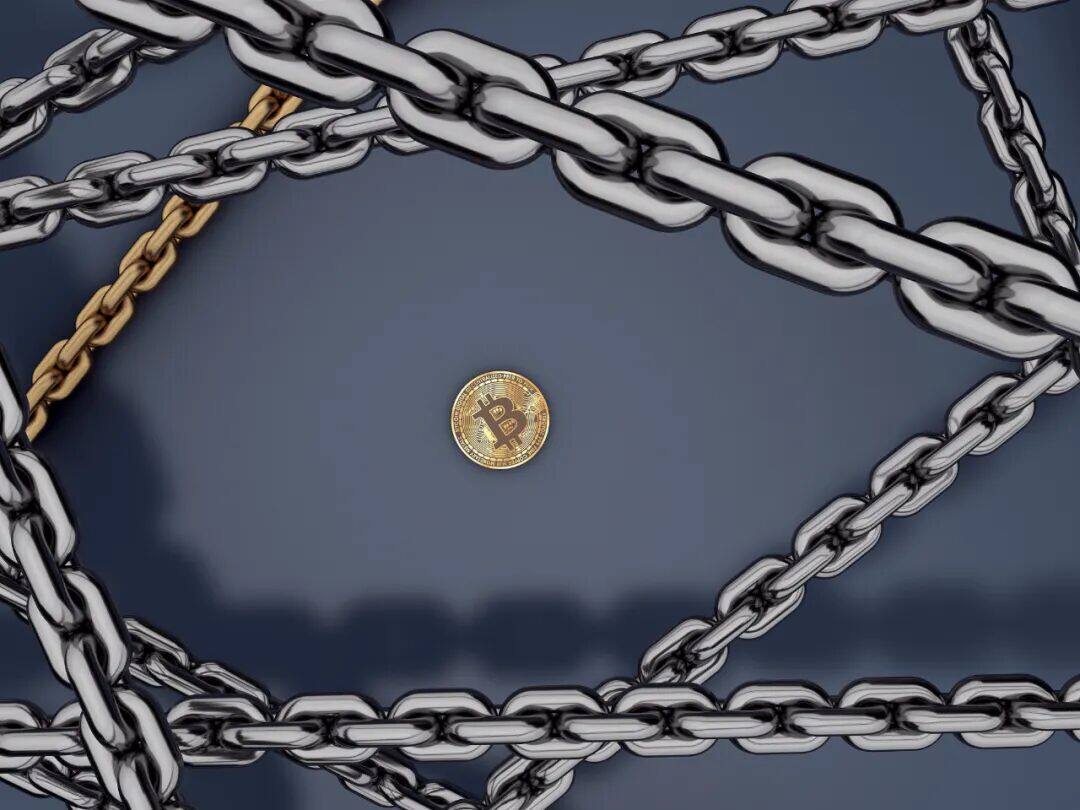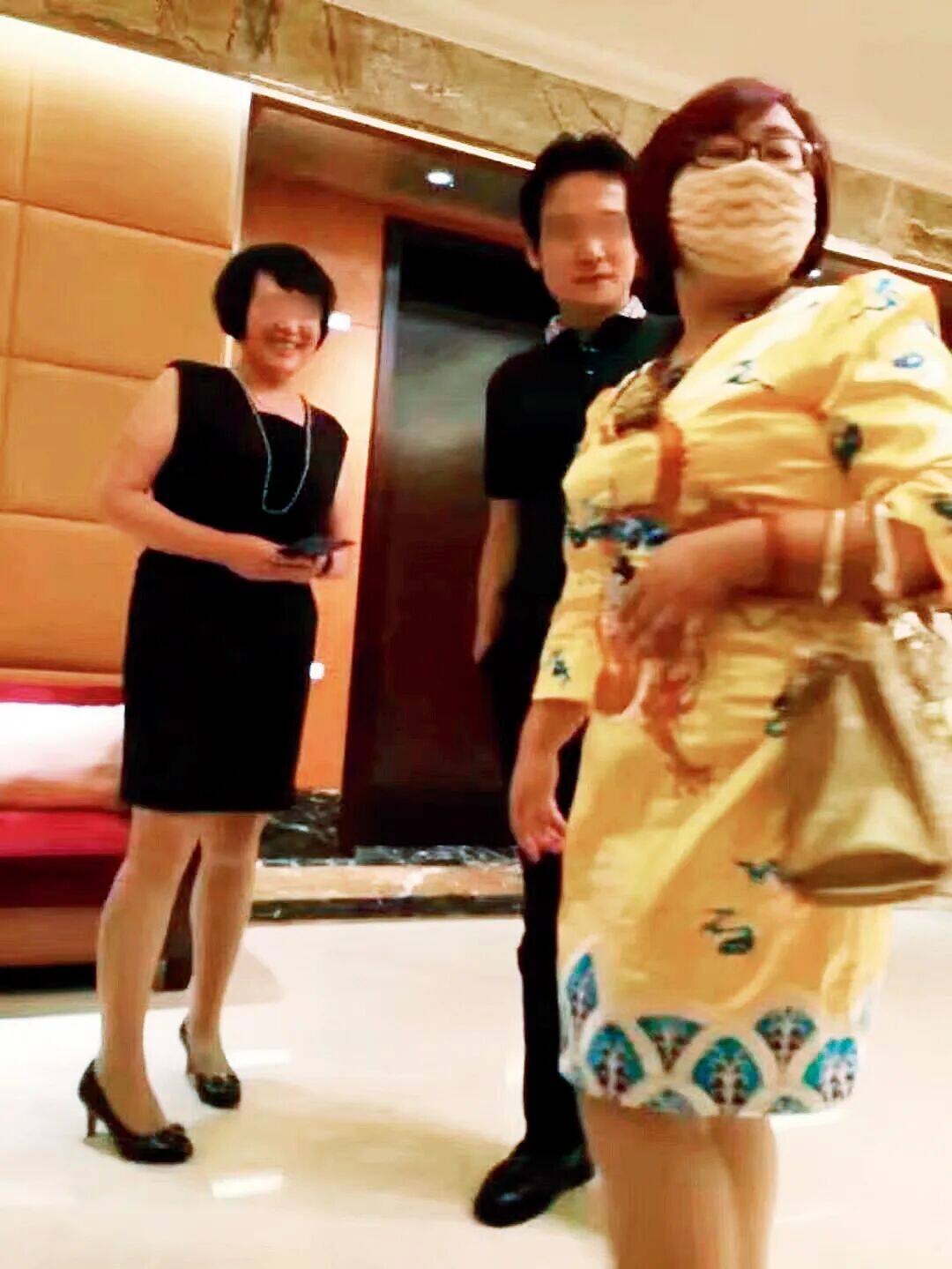Can the 40 billion Bitcoins that Qian Zhimin took away be returned to China?
- 核心观点:跨国追赃成蓝天格锐案焦点。
- 关键要素:
- 英国查获6.1万枚涉案比特币。
- 比特币市值暴涨至500亿元。
- 中英司法协作突破证据互认。
- 市场影响:推动加密资产跨境追赃制度化。
- 时效性标注:中期影响。
Original authors: Li Qinhua and Fang Siwen
Original source: China Newsweek
Ge Qiu hadn't seen the name "Qian Zhimin" for several years, and discussions surrounding this name and the Lantian Gree Investment case behind it had gradually subsided. Until the last two months, her nearly 400-member rights protection group became lively again, with members forwarding lawyers' interpretations and various short videos about the case's progress.
On November 11 local time, Qian Zhimin, the main culprit in the Tianjin Lantian Gree illegal fundraising case and the largest Bitcoin money laundering case in British history, was sentenced to 11 years and 8 months in prison in the UK. With the criminal part of the case settled, public attention has shifted to transnational restitution.
In this case, British police have identified 61,000 bitcoins, which, according to British judicial documents, were primarily purchased with proceeds from crimes committed by Qian Zhimin in China. The UK Supreme Court was scheduled to hold another hearing on November 17th to discuss the disposal of the 61,000 bitcoins, but subsequently announced a postponement until January 2026.
A lawyer who has participated in the Qian Zhimin case trials multiple times told China News Weekly that British courts are currently conducting both criminal proceedings and civil recovery proceedings simultaneously. The participants and courts handling the proceedings are different in the two cases. Some evidence from the criminal proceedings may be used in the civil recovery proceedings. It takes time for the participants and the courts handling the proceedings to become familiar with this evidence, so the postponement of the hearing is understandable.
Due to the surge in Bitcoin prices, the market value of the Bitcoin involved in the case once approached 50 billion yuan. Whether the victims can expect to receive full compensation, or even "profit" from the appreciation in value, and who should enjoy the increased value, have become one of the focal points of discussion in this case.
Yan Lixin, professor at the School of International Finance at Fudan University and executive director of the Fudan University China Anti-Money Laundering Research Center, told China News Weekly that this Bitcoin money laundering case is not only an "epic" case in the field of digital currency anti-money laundering, but also a complex legal, diplomatic and geopolitical game, a battle for "ownership" and "jurisdiction". "Our core demand is very clear - return the property to its rightful owner, that is, return it to the Chinese victims."

Photo/Visual China
More than 61,000 Bitcoins
Recalling those seven or eight years, Zheng Zhengge described it as "losing everything and losing his wife and children." In 2016, through a friend's introduction, this teacher, whose income was not high, came into contact with an investment project called "Lantian Gerui."
At the time, Blue Sky Green claimed to be working with local governments on elderly care projects and portrayed smart elderly care as a future trend. Zheng Zhengge didn't trust private companies, but the claim of "government cooperation" lowered his guard. To get on this wealth train, he maxed out his credit cards and took out loans with his salary, investing more than one million yuan in total.
The myth shattered suddenly and unexpectedly. For years, he has struggled in the quagmire of debt, still owing over 100,000 yuan. In his most desperate moment, due to overdue loans, he was blacklisted on the credit system, and his salary card was frozen for three or four years. As a teacher, he taught classes on time but didn't receive his salary, while his children were waiting for the money to go to university.
Qian Zhimin, who reaped the benefits from "investors," instructed his "front figures" to open accounts on the cryptocurrency exchange Huobi starting in June 2014, systematically converting investor funds into crypto assets. A UK Supreme Court ruling detailed this process.

The person on the far right wearing a mask is Qian Zhimin (file photo).
When Qian Zhimin arrived in the UK in September 2017, he had approximately 70,000 bitcoins, worth £305 million. In October 2018, London police conducted their first search of his residence in Hampstead, discovering an additional £163,000 in cash and evidence of the transfer and conversion of over 18,800 bitcoins, gradually uncovering clues to approximately 61,000 bitcoins.
According to a previous report by China News Weekly, a special audit revealed that from August 2014 to July 2017, Lantian Gree absorbed more than 40.2 billion yuan in funds, all of which were controlled and managed by Qian Zhimin. From April 2014 to August 2017, Lantian Gree returned more than 34.1 billion yuan to 128,409 people, and another 1.14 billion yuan was used to purchase Bitcoin.
Documents obtained by the media from a British court also show that Qian Zhimin purchased a total of 194,951 bitcoins, higher than the 61,000 bitcoins seized by the police. However, the court did not disclose the situation of the remaining 120,000-plus bitcoins. This means that there is a high possibility that Qian Zhimin's assets still contain bitcoins that have not yet been discovered or confiscated. In an interview with British media, London Metropolitan Police detective Joe Lane revealed that Qian Zhimin claimed that the password to a wallet containing 20,000 bitcoins had been lost. According to the latest market price, these "lost" bitcoins alone are worth approximately 12.5 billion yuan.
The UK Supreme Court showed particular sympathy for the plight of these "investors." On November 11, 2025, in her sentencing statement for Qian Zhimin, British Judge Sally-Ann Hales specifically pointed out that although the funds seized so far were sufficient to repay the investors, this could not erase the real harm suffered by the victims beyond money: "Some lost their homes, suffered physical and mental health damage, their marriages and family relationships broke down, and 'shame' was a recurring and pervasive feeling."
The court ruled that, given Qian Zhimin's role in the crime, the sentence needed to be increased from the stipulated 10 years. After comprehensive consideration, his sentence was finally determined to be 11 years and 8 months.
Since his arrest in the UK in April 2024, Qian Zhimin has repeatedly maintained his innocence. However, he pleaded guilty on the first day of this trial, leading some to speculate that the British authorities may have received evidence from Chinese law enforcement agencies.
On October 30, 2025, the Hedong Branch of the Tianjin Municipal Public Security Bureau issued a situation report stating that the Tianjin Municipal Public Security Bureau had carried out in-depth international cooperation with British law enforcement agencies through international law enforcement and judicial cooperation channels to pursue fugitives and recover stolen assets, and made every effort to recover the losses of participants in the fundraising scheme.
In addition, the "Blue Sky Green Case Clearance Working Group" of the Finance Bureau of Hedong District, Tianjin, also issued a notice reminding unregistered investors in the Blue Sky Green case to verify their participation. The deadline for verification is from October 31, 2025 to December 29, 2025. The notice stated: "The verification results will serve as the basis for the return of funds. Relevant investors are requested to verify their participation within the time limit specified in this notice."
"The biggest highlight of this case is the breakthrough in 'intelligence exchange' and 'mutual recognition of evidence.' Although there was no extradition, the British police recognized the basic facts provided by the Chinese police regarding the upstream fraud, which is no small feat," Yan Lixin pointed out to China News Weekly.
The head of the Economic and Cyber Crime Command of the Metropolitan Police also stated that Qian Zhimin's conviction marks "the result of years of joint efforts between the (British) police and Chinese law enforcement agencies."

The office of Lantian Gree Company, located in the Fujian Building in Hedong District, Tianjin, has been sealed off. Photo by Liu Xiangnan, reporter for this magazine.
Proof that it was "stolen money" stained with blood.
Several interviewees recalled to China News Weekly that between 2021 and 2022, the Tianjin Municipal Public Security Bureau had conducted two rounds of refunds to victims who had registered their personal information, at rates of 5% and 8% respectively. Zheng Zhengge said, "For people who have invested tens of millions of yuan, this is just a drop in the bucket."
In November 2021, Wu Xiaolong, general manager of Lantian Gree, was tried. The amount involved in his personal case was determined to be 8.7 billion yuan, and the assets under his name that could be executed were 9.56 million yuan, which was only one-thousandth of the amount to be recovered.
Meanwhile, across the ocean, the UK has issued an asset freeze order under the Property Protection Act. The 61,000 frozen Bitcoins, due to the market surge, are now worth over £5 billion. In September 2024, the UK Crown Prosecution Service formally initiated civil recovery proceedings under the Proceeds of Crime Act 2002 (POCA) and issued a "Victim Notice Regarding the Blue Sky Green fraud case," explaining the recovery process.
In theory, according to Article 281 of the POCA, the claims procedure leaves a narrow door for “investors” who want to protect their rights – “investors” can file a claim with the UK Supreme Court to make a legitimate claim to their own property.
On October 15, 2025, the UK Crown Prosecution Service also proposed during a preliminary hearing that it was considering establishing a "compensation scheme" for Chinese victims who were not involved in the civil cases. This scheme is currently awaiting court review and approval. China Newsweek sent an email to the Crown Prosecution Service inquiring about specific details, but had not received a valid response as of press time.
According to the UK government's asset recovery statistics, the Home Office shares confiscated assets with the requesting country, typically at a 50% ratio. In specific cases involving victims, the UK may negotiate a different ratio.
Zhu Jiangnan, a professor in the Department of Politics and Public Administration at the University of Hong Kong, pointed out to China News Weekly that according to the Sino-British Treaty on Mutual Legal Assistance in Criminal Matters, when the assets confiscated by the requested party are public funds, and these assets are proceeds of embezzlement or misappropriation by the requesting party, regardless of whether these funds have been laundered, the requested party should return the confiscated assets or the proceeds from the sale of the assets to the requesting party, but reasonable realization costs should be deducted. For economic fraud involving non-public funds, such as the Qian Zhimin case, the provisions stipulate applicable circumstances, but the specific return situation still needs to be ultimately determined through judicial procedures, based on the chain of evidence, court hearings, diplomatic negotiations, and other formalities; there is no clearly defined and uniform proportion.
Once it's finalized how much of the funds will belong to the UK, the distribution of benefits among different departments within the UK will vary. Zhu Jiangnan stated that the UK's Asset Recovery Incentivisation Scheme (ARIS) clearly stipulates a 50:50 split between the central government and various law enforcement agencies to incentivize them to further combat crime. "In the Qian Zhimin case, the extremely high level of enthusiasm shown by the police and prosecutors, besides professional ethics and performance considerations, is hard to say was not driven by this incentive mechanism," Zhu Jiangnan analyzed.
In response to inquiries from China Newsweek regarding the asset disposal, the Metropolitan Police Service of London explicitly stated that they hoped to see some of the recovered assets "flow to London and the people of London." For the British police, who spent seven years investigating this case, this undoubtedly represents a channel for recovering funds to offset their investigation costs.
"Faced with enormous profits, any institution can become a 'rational economic agent.' The ARIS mechanism has turned law enforcement into a business, and what we need to do is prove that this money is 'stolen money' stained with blood, not 'profits' left unclaimed," Yan Lixin pointed out to China News Weekly.
The mismatch between "the case being overseas and the victims being in China" is the biggest challenge in cross-border asset recovery. Many experts emphasize the need to demonstrate a "victim-first" principle and stance during case negotiations. Yan Lixin stated that, according to the United Nations Convention against Corruption (UNCAC) and the United Nations Convention against Transnational Organized Crime (UNTOC), the return of assets to their rightful owners is the first priority. "Only after all victims have been compensated will the remaining amount (if any) be discussed between China and the UK regarding profit sharing."
Zhao Binghao, dean of the Institute of Financial Technology and Law at China University of Political Science and Law, told China News Weekly that my country can accept the UK deducting "reasonable law enforcement costs," but needs to prevent automatically falling into a situation where 50% or even lower percentages are returned by default.
Previously, the UK Supreme Court emphasized that interstate contact would not proceed unless an individual or entity asserted a claim at the stage stipulated in Article 281 of the POCA. In other words, the UK would first determine the ownership of the assets through its own judicial procedures before considering consultations with China regarding the return of the assets.
This action has sparked controversy. Qian Zhimin's lawyer, Roger Sahota, stated, "The move by the British courts means that any surplus from recovered assets could be retained by the state, effectively turning law enforcement into a potential new source of revenue for the government."
How much can be refunded?
For the victims in this case, the most anticipated outcome is undoubtedly a "full refund." This model is not without precedent.
Zhu Jiangnan mentioned a landmark case in China's pursuit of fugitives and recovery of illicit assets—the case of Li Huabo, former head of the Economic Construction Section of the Finance Bureau of Poyang County, Jiangxi Province. In 2015, although China and Singapore did not have a bilateral judicial assistance treaty, they cooperated, and the Singapore High Court enforced the Chinese court's confiscation ruling, returning all illicit funds in Li Huabo's case, totaling RMB 20.4464 million, to China. This was the first case in which Chinese procuratorial organs used the procedure for confiscating illegal proceeds to recover illicit funds from corrupt officials who had fled overseas.
Yan Lixin suggests that a more feasible approach is for the Chinese government or its designated asset managers to represent all victims in civil lawsuits in British courts, or to act as the rights holders in civil suits attached to criminal cases. "This is not only a legal technical issue, but also a social governance issue. The government's involvement can best appease the emotions of domestic victims, while simultaneously demonstrating the nation's will in international courts."
Shanghai Duan & Duan Law Firm is one of the law firms involved in representing investors in the Lantian Gree illegal fundraising case in their cross-border recovery of losses. Gu Zhaoqin, a lawyer at the firm's Hongqiao branch, told China News Weekly that the UK prosecutor's civil recovery proceedings are still in their early stages, and the exchange of substantive evidence has not yet begun; the entire process will be quite lengthy.
Previously, Yang Yuhua, a partner at the UK law firm Junzhe, wrote that more than a thousand Chinese investors had attempted to assert their rights through this procedure, with some making "radical" claims: demanding not only the return of their principal but also the appreciation in value of Bitcoin over the past seven years.
Yan Lixin believes that if Chinese victims claim compensation based on the appreciated value, they may face questions of "unjust enrichment" in the eyes of British judges. "However, the 'tracing principle' in the field of anti-money laundering tells us that if a victim's money was used to buy lottery tickets and won a big prize, the victim has the right to claim the prize money, not just the principal of the lottery ticket."
Zhao Binghao agrees with this logic. He says that civil recovery focuses on whether the property itself represents the proceeds of illegal activity. In principle, as long as the victim can prove that the money they were defrauded of grew into virtual currency along the chain, they have the right to claim compensation based on its present value. However, whether the amount can be fully realized depends on whether the funds on the chain can be completely tracked, how they are distributed among different victims, and the court's acceptance of the chain of evidence.
However, Yu Jianing, co-chairman of the Blockchain Committee of the China Communications Industry Association, expressed a different view to China Newsweek. He believes that the huge increase in value of 61,000 Bitcoins over seven years is a typical example of capital gain, stemming from the market appreciation of Bitcoin. Allowing victims to claim their rights based on the current market value of Bitcoin is tantamount to acknowledging that they enjoy investment returns from the appreciation of virtual currency within an inherently illegal Ponzi scheme. "This not only conflicts with the negative evaluation of illegal fundraising under criminal law, but also creates a negative incentive ethically: 'Success means high returns, failure means being a victim.'"
He pointed out that, referencing precedents such as the PlusToken case, considered the first cryptocurrency case in China, Chinese courts uniformly recognize the entire value of virtual currencies, including the appreciation resulting from price increases, as illegal gains, without using cost or purchase price as the basis for calculation. This appreciation, far exceeding the total principal, "is more appropriately understood as a public surplus value." China should assert, through diplomatic and judicial channels, the indivisibility of this huge premium as part of the criminal asset package, recovering it and incorporating it into the Chinese national treasury. After repaying the victims' principal, the remaining huge sums should be converted into public financial resources.
Technical identification challenges
In addition, the determination of technical evidence is an even more challenging issue.
Yu Jianing stated that for an ordinary investor, accurately tracing their past "investment" in RMB to the 61,000 Bitcoins seized by British police today is technically an almost impossible task. This is because this path traverses three fundamentally separate systems: first, the RMB-based bank account and cash collection system; second, the over-the-counter (OTC) cryptocurrency exchange market heavily reliant on personal networks and WeChat groups; and third, on-chain fund flows deliberately disrupted by cold wallets, multi-layered redirects, and coin mixers.
In Yu Jianing's view, the period from 2014 to 2017, when Qian Zhimin systematically converted investor funds into crypto assets, was a typical era of off-exchange currency exchange, concentrated buying, highly mixed funds, and the use of coin mixers. The source of funds lost individual identifiability the moment it entered the large pool. On-chain analysis could only reconstruct "the pool is dirty" rather than "whose drop of water it is". "From the moment the funds arrive at the ground promotion personnel or the fund pool, they are transferred into a huge black box. From an individual perspective, it is completely impossible to see which money was exchanged for which coin."
What complicates matters further is that many investors in the Blue Sky Green case were involved in multiple projects with rolling investments. A lawyer who has studied the case in depth told China News Weekly that in this case, principal, profits, and reinvestment were intertwined, and the cashback methods for some products differed. Some investors rolled over their investments in cash, while others reinvested in physical assets such as "Dotcoins," resulting in discrepancies between the book value and the actual losses. "At present, whether in China or the UK, there is a lack of professional expertise capable of making a complete and credible reconstruction of the entire flow of funds, the Bitcoin conversion process, and the corresponding holder relationships."
Faced with extremely high legal hurdles and pursuit costs, Zheng Zhengge ultimately chose a third-party organization facilitated by a multinational corporation to assist in protecting his rights. Although the other party promised a commission rate of up to 20%, he only hoped to get his principal back as soon as possible. "As for the returns on the added value, I dare not hope for it."
In addition, Zhao Binghao pointed out that some international judicial institutions would exploit the contradictions in my country's current regulatory and judicial practices to question China. "Regarding regulation, the issuance and financing of Bitcoin is illegal. However, in handling cases, we treat virtual currencies as property, putting us in a rather awkward position."
In response, Yu Jianing argues that while China denies Bitcoin's monetary attributes, its Civil Code explicitly protects its rights as "virtual property on the internet." This provides a solid legal basis for cross-border asset recovery.
Yan Lixin offered a more incisive, "pragmatic" analogy: "Our 'internal restrictions' are to prevent financial risks, while our 'external demands' are to uphold judicial justice. These two are not contradictory. Just like cleaning behind closed doors doesn't mean that anyone can pick up what's left at the door."
"This case is not only about recovering stolen assets, but also an opportunity. It forces China to shift its virtual currency regulation from 'only emphasizing risks and prohibition' to a more refined approach of 'risk prevention, rule-based governance, and alignment with international standards.' Only in this way can China have sufficient say and institutional confidence in future transnational asset recovery and asset sharing negotiations," said Zhao Binghao.
(Zheng Zhengge and Ge Qiu are pseudonyms in this article)



